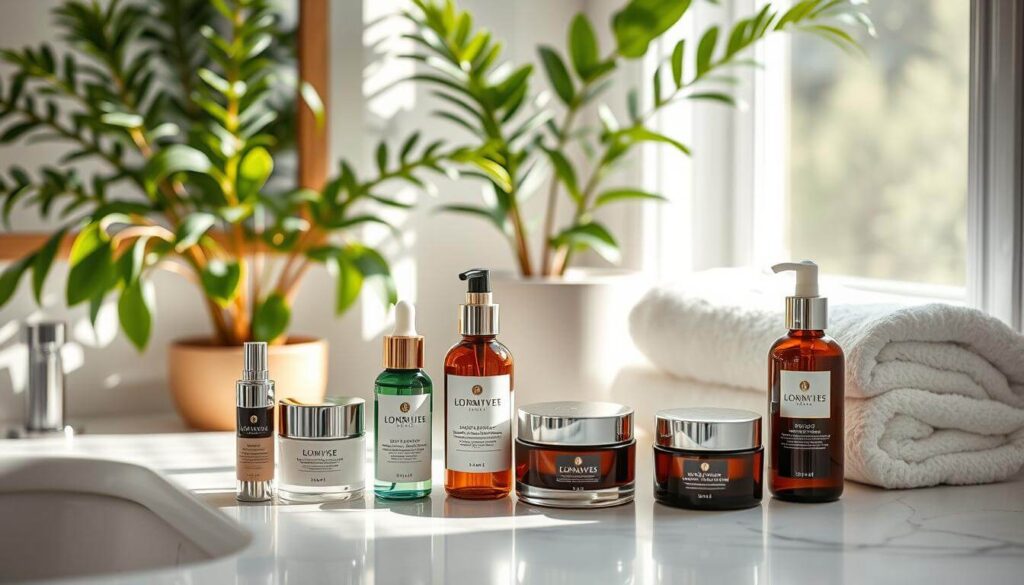Glowing, radiant skin is often seen as a sign of health and vitality, but achieving that coveted complexion takes more than just good genes. It’s the result of proper care, a balanced lifestyle, and choosing the right skincare products tailored to your skin’s needs. Whether you’re dealing with dryness, dullness, or occasional breakouts, the good news is that there are simple, effective ways to enhance your skin’s natural glow. With a few key adjustments to your routine, you can enjoy a brighter, healthier complexion every day.
In this article, we’ll uncover 10 skincare secrets that are scientifically backed and proven to help you achieve glowing, radiant skin. From hydration to sun protection, these secrets touch on all the vital aspects of skincare, ensuring that you can confidently build a routine that delivers results. Let’s dive into these essential tips that will leave your skin looking and feeling its best.
1. The Power of Hydration
Water is the foundation of healthy, glowing skin. Keeping your skin hydrated ensures elasticity, reduces the appearance of fine lines, and gives you that radiant glow.
Importance of Drinking Water
Hydration starts from within. Drinking enough water daily helps to flush out toxins, improve circulation, and keep your skin supple.
Hydrating Skincare Products
Using hydrating products like hyaluronic acid serums and moisturizing creams ensures that your skin stays plump and hydrated throughout the day. Choose products with ingredients like glycerin, aloe vera, and ceramides.
2. Nourish Your Skin from Within
What you eat shows on your skin. A balanced diet full of essential nutrients can greatly enhance your skin’s natural glow.
Balanced Diet for Radiant Skin
A diet rich in fruits, vegetables, whole grains, and lean proteins provides the vitamins and minerals your skin needs to stay healthy. Foods like berries, leafy greens, and fatty fish are particularly good for skin health.
Foods Rich in Antioxidants
Antioxidant-rich foods, such as blueberries, spinach, and nuts, help protect your skin from environmental damage and reduce signs of aging. These foods neutralize harmful free radicals and promote a youthful, glowing complexion.

3. Exfoliate Regularly, but Gently
Exfoliation helps remove dead skin cells, allowing fresh, radiant skin to come to the surface. However, it’s important to do it carefully to avoid irritation.
Types of Exfoliation (Physical vs. Chemical)
Physical exfoliators use granules or brushes to manually slough off dead skin cells, while chemical exfoliants use acids like glycolic or salicylic acid to dissolve them. Both methods can be effective, but chemical exfoliants tend to be gentler for most skin types.
Best Practices for Safe Exfoliation
Exfoliate 2-3 times a week depending on your skin type. Over-exfoliation can cause redness, irritation, and even breakouts. Always moisturize afterward to restore the skin barrier.
4. Protect Your Skin from the Sun
Sun exposure is one of the leading causes of premature aging and skin damage. UV rays break down collagen, leading to wrinkles and sunspots.
Importance of Sunscreen
Using sunscreen daily is non-negotiable for maintaining youthful, healthy skin. Even on cloudy days, harmful UV rays can damage your skin, so SPF is essential year-round.
Choosing the Right SPF
A broad-spectrum sunscreen with at least SPF 30 is recommended for everyday use. Look for formulas with added antioxidants for extra protection.
5. Use Antioxidant-rich Serums
Antioxidants are powerful tools for combating environmental stressors like pollution and sun damage.
Benefits of Vitamin C and E Serums
Vitamin C brightens the skin and helps fade dark spots, while Vitamin E is known for its healing and moisturizing properties. Both work together to protect and rejuvenate your skin.
Incorporating Antioxidants into Your Routine
Apply antioxidant serums in the morning before sunscreen to enhance protection from environmental damage.
6. Get Enough Sleep
Beauty sleep is real. Your body repairs and regenerates cells while you sleep, making it essential for glowing skin.
How Sleep Affects Skin Health
A lack of sleep can lead to dull skin, dark circles, and breakouts. During deep sleep, blood flow to the skin increases, promoting cell turnover and repair.
Tips for Better Sleep
To improve sleep quality, establish a relaxing bedtime routine, avoid screens before bed, and make your sleep environment comfortable and cool.
7. Moisturize Daily
Moisturizing is crucial to maintain your skin’s barrier and prevent dryness.
Choosing the Right Moisturizer for Your Skin Type
For oily skin, opt for lightweight, gel-based moisturizers, while dry skin benefits from rich, creamy formulas. Combination skin can benefit from balancing moisturizers that hydrate without feeling heavy.
The Best Time to Moisturize
The best time to apply moisturizer is right after cleansing when your skin is still slightly damp, helping to lock in moisture.
8. Stress Management for Glowing Skin
Stress can take a toll on your skin, leading to breakouts, redness, and dullness.
Effects of Stress on Skin
When you’re stressed, your body releases cortisol, a hormone that can increase oil production and lead to clogged pores and breakouts.
Techniques to Manage Stress
Practice mindfulness, meditation, and regular exercise to reduce stress levels and keep your skin glowing. Getting adequate sleep and maintaining a healthy diet also contribute to better skin health.
9. Avoid Harsh Chemicals
The wrong skincare products can do more harm than good. It’s important to know which ingredients to avoid.
Identifying Harmful Ingredients in Skincare Products
Stay away from products that contain parabens, sulfates, and artificial fragrances. These chemicals can irritate your skin and cause long-term damage.
Opting for Natural and Organic Products
Natural and organic skincare products tend to be gentler on the skin and are less likely to cause irritation or allergies. Look for products with ingredients like chamomile, green tea, and aloe vera.
10. Consistency is Key
Good skincare is a marathon, not a sprint. Consistency in your routine will yield long-lasting results.
Building and Sticking to a Skincare Routine
Create a routine that fits your lifestyle and skin needs. It should include cleansing, moisturizing, and sun protection at a minimum.
Tracking Your Skin’s Progress
Keep a skincare journal to note changes and improvements in your skin over time. This will help you understand what works and what doesn’t.

FAQs: Common Skincare Questions Answered
How often should I exfoliate my skin?
It depends on your skin type, but generally 2-3 times per week is safe. Over-exfoliating can lead to irritation.
What foods should I eat for glowing skin?
A diet rich in antioxidants, vitamins, and healthy fats like berries, leafy greens, and nuts will promote radiant skin.
How important is sunscreen for daily skincare?
Sunscreen is essential for protecting your skin from UV damage, preventing premature aging, and reducing the risk of skin cancer.
How do I choose the right moisturizer for my skin type?
For oily skin, use lightweight gels. For dry skin, opt for creamy, hydrating formulas.
Can stress really affect my skin?
Yes, stress increases cortisol levels, which can lead to breakouts and other skin issues.
Are natural skincare products better than synthetic ones?
Natural products are often gentler on the skin and contain fewer harmful chemicals.
Conclusion
Glowing, radiant skin requires a holistic approach that includes proper hydration, nutrition, and a consistent skincare routine. By incorporating these 10 skincare secrets into your daily life, you’ll achieve and maintain healthy, luminous skin.



